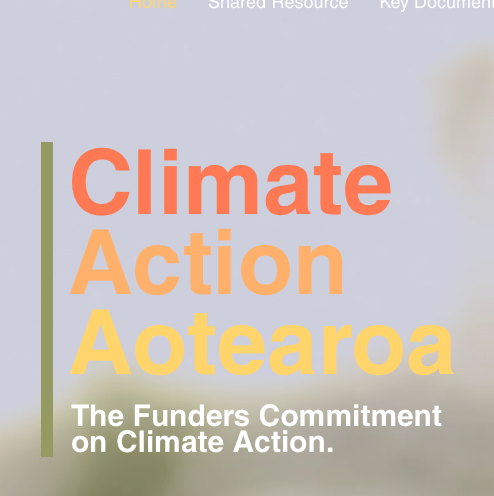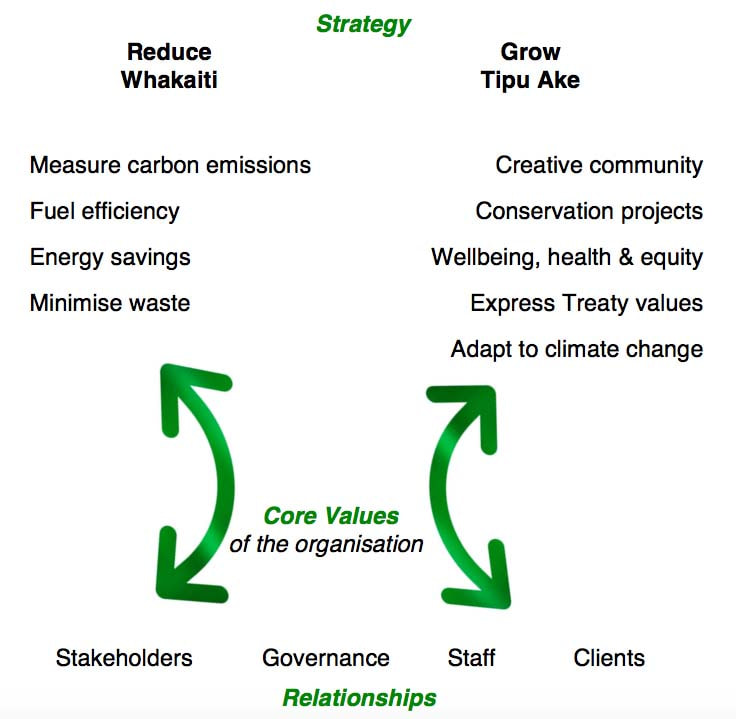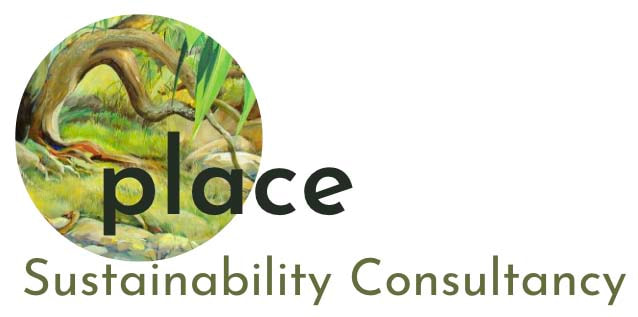Not-for-profits and Social Services
|
It is not easy for Non Profit Organisations to lead in the space of environmental responsibility. Unless your organisation's prime purpose is conservation you don't get funded for this.
Plus, let's face it, our models of social work, therapy, community development and health care are human-centred. We inherit an anthro-centric world view, forged on basic assumptions about the world from an era when the planet could be taken for granted. That era is over. We are now in an era in human history when our natural environment is in such critical stress than every aspect of human endeavour or community is affected. Place calls on all community organisations and community-minded businesses to address their environmental impact and plan for climate change. |
|
A Guide for Just Transitions: He puka arataki whakawhitinga tika
A project of MBIE in partnership with Motu Research. |
'Purpose, people and planet' is a toolbox written for Not-For-Profit organisation by the Chartered Accountants Australia New Zealand. Nice stories from sample groups.
|
Climate Governance for NFP Directors: Starting the Journey to Net Zero
A resource published by the Australian Institute of Company Directors |
Changes to Government Procurement
There is a rapidly growing expectation, particularly from the NZ Government, that businesses and organisations will have environmental policies and plans to mitigate and adjust to climate change. With the declaration of a climate emergency on 2 December 2020 this has become even more important, with the challenge extending through the NZ economy and community. Specifically for NPOs this will impact on funding contracts, as environmental policies become required for national and local government procurement of social services.
View the NZ Govt Procurement Charter here.
View the NZ Govt Procurement Charter here.
|
Rule 20 of the NZ Govt Procurement Rules (priority outcome 4): view here
Transitioning to a net zero emissions economy and designing waste out of the system 1. Agencies should: a. support the procurement of low-emissions and low-waste goods, services and works. b. encourage innovation to significantly reduce emissions and waste impacts from goods and services. 2. For designated contracts, agencies must support the procurement of low-waste and low-emissions goods and services and encourage innovation to significantly reduce emissions and waste impacts from goods and services. 3. Agencies must have regard to guidance published by MBIE on the procurement of low-waste and low-emissions goods and services. 4. Agencies must conduct sufficient monitoring of designated contracts to ensure that commitments made in contracts are delivered and reported on. |
Comment: Social Work
Sylvia Ramsay and Jennifer Boddy critique the social work as being anthropomorphic in their literature review. They define and advocate for 'environmental social work':
"while many workers are focused on immediate concerns related to housing, health, child protection, poverty and so on, it is important to be mindful that the magnitude of these issues is compounded by environmental degradation. The health and well-being of clients can be improved by incorporating the natural environment into practice. The process can begin by being open to different values and ways of being or doing—an attribute that concentrates on growing self-awareness. Practitioners can focus on learning from other cultures, appreciating the value of other life forms, being aware of the ways the natural environment supports life and making choices congruent with environmental social work in their personal lives. By critiquing the hegemony and modifying interventions, front line workers can help change society to become inclusive and sustainable."
"Environmental Social Work: A Concept Analysis", British Journal of Social Work (2017) 47, 68–86, doi: 10.1093/bjsw/bcw078. Download article here.
Sylvia Ramsay and Jennifer Boddy critique the social work as being anthropomorphic in their literature review. They define and advocate for 'environmental social work':
"while many workers are focused on immediate concerns related to housing, health, child protection, poverty and so on, it is important to be mindful that the magnitude of these issues is compounded by environmental degradation. The health and well-being of clients can be improved by incorporating the natural environment into practice. The process can begin by being open to different values and ways of being or doing—an attribute that concentrates on growing self-awareness. Practitioners can focus on learning from other cultures, appreciating the value of other life forms, being aware of the ways the natural environment supports life and making choices congruent with environmental social work in their personal lives. By critiquing the hegemony and modifying interventions, front line workers can help change society to become inclusive and sustainable."
"Environmental Social Work: A Concept Analysis", British Journal of Social Work (2017) 47, 68–86, doi: 10.1093/bjsw/bcw078. Download article here.





